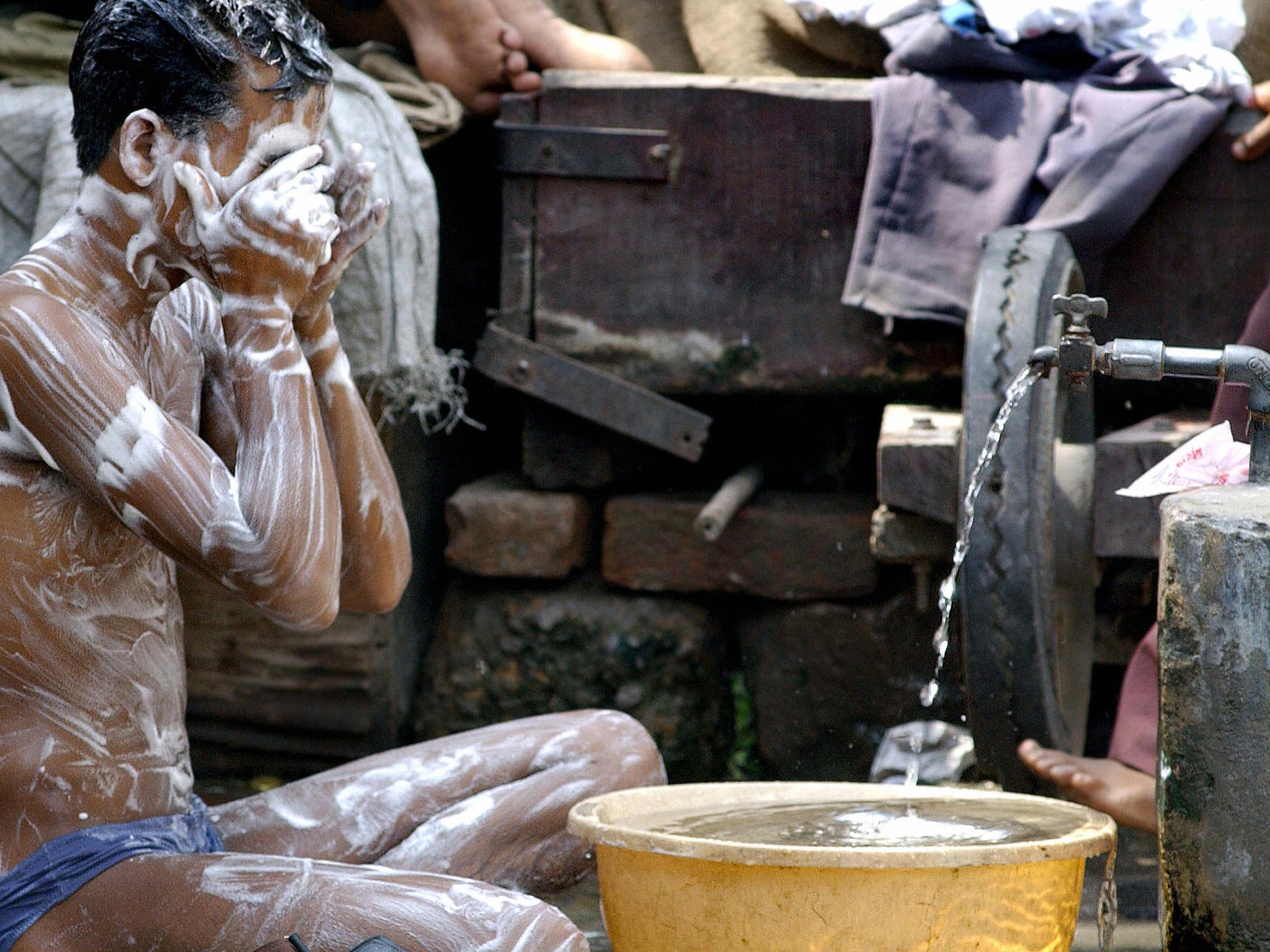Dirty water and poor hygiene stunting growth of millions
Using clean water is one of the best ways to stop children losing essential nutrients vital to growth, says study

Simply providing children with clean water and soap could make them grow taller, according to the first scientific review of its kind.
Improving the quality of water and hand-washing could add half a centimetre on average to the height of children under five – as it is thought that dirty water and poor hygiene can increase the risk of infection in the child’s gut, reducing the amount of nutrients that can be absorbed.
For the first time, research found that simple measures – such as disinfecting water using cheap solar energy, providing soap and improving water quality – could reduce the prevalence of stunted growth by up to 15 per cent. Stunting irreversibly affects the physical and mental development of an estimated 165 million children worldwide.
The study was carried out for the Cochrane Review, authored by the London School of Hygiene and Tropical Medicine and the charity WaterAid. Its lead author, Dr Alan Dangour, said the findings were key to tackling the “burden of undernutrition”.
Undernutrition is a cause of 3.1 million deaths annually – accounting for nearly half of all deaths of children under five years old. Dr Dangour, who is also a senior research fellow at the Department for International Development (DfID), added: “Providing clean water, sanitation and hygiene is an effective way to reduce the incidence and associated deaths from diseases such as diarrhoea – which remains the third biggest killer of under-fives worldwide. For the first time our analysis suggests that better access to these services may also have a small but important impact on the growth of young children.”
The review examined 14 studies conducted in low- and middle-income countries – including Bangladesh, Ethiopia, Pakistan, Chile, South Africa and Nepal – providing data on more than 9,000 children. It is thought additional research being undertaken in Zimbabwe, India and Bangladesh will strengthen the evidence.
Yael Velleman, one of the authors and a senior policy analyst at WaterAid, told The Independent that the link between water, sanitation and nutrition could help explain why children in some countries are shorter than others in equally developed nations.
Only around one-third of people are using improved sanitation facilities in India. “There is a huge gap between evidence and knowledge of what causes undernutrition,” she said.
Five years ago, the World Health Organisation estimated that 50 per cent of childhood malnutrition is associated with repeated diarrhoea or intestinal worm infections. The authors hope that this report – the first to quantify how water and sanitation measures can aid growth – can inform new policy.
Professor Tim Wheeler, deputy chief scientific adviser to the DfID, which funded the research, said the report further supports the use of clean water and soap as “one of the best ways to prevent contracting diarrhoea and stopping young children losing the essential nutrients vital for them to grow.”
Join our commenting forum
Join thought-provoking conversations, follow other Independent readers and see their replies
0Comments